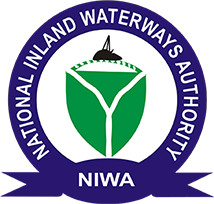We put responsibility first
- Home
- Anti-Corruption and Transparency Unit (ACTU)
Head NIWA ACTU
Abdullahi Aliyu Dabai
NIWA CORE VALUE
Safety
Prioritizing the safety of waterway users, personnel and infrastructure
Efficiency
Striving for efficient management and operations of inland Waterways;
Sustainability
Environmentally sustainable practice in waterway management and development;
Collaboration
Fostering partnership and collaboration with stakeholders for effective waterways utilization:
Innovation
Embracing innovation to enhance the effectiveness and accessibility of water transportation;
Integrity
Upholding integrity, transparency and accountability in all activities and decisions.
NIWA CULTURE
- Efficient Management of inland waterways;
- Environmental sustainability;
- Promoting inland water transportation;
- Fostering innovation;
- Ensuring safety;
- Collaboration;
- Team Work;
- Expertise in maritime and waterways management.
ETHICS OF NIWA
- Fair and transparency
- Environmental conservation
- Equitable distribution of resources
- Accountability
- Adhering to legal and regulatory framework
- Avoiding conflict of interest
- Promoting safety standards;
- Considering the socio-economic impact of activities on local communities
MANDATE OF ACTU
The ACTU was created to serve as an extension of ICPC in the MDAs through an approval by government, vide the Head of the Civil Service of the Federation circular Ref. No. OHCSF/MSO/192/94 dated 2nd October 2001, and another circular Ref. No. OE/MS/MSO/196/S1/7 dated 16th April 2003. The underlying reason for the establishment of the unit was to complement and strengthen the efforts of the Commission in the areas of monitoring, reporting and preventing corruption in the MDAs.
POWER AND FUNCTIONS OF ACTU
ACTUs derive their powers from the provisions of Section 6(a) – (t) of the corrupt practices and other Related Offences Act, 2000, which empowers them to serve as compliance and ethics officers, with the sole aim of educating and enlightening their respective MDAs on the need for adherence to rules, regulations and upholding of ethical practices in the workplace. ACTUs are also empowered to carry out preliminary and administrative investigations into cases of misconduct and refer to appropriate quarters as spelt out in the ACTU Standing Orders.
The Unit shall monitor report on, and provide advice with respect to compliance with the prohibitions covering behaviors that bear on corrupt practices and contained in the following sections of the corrupt practices and other Related Offences Act 2000, as follows:
Section 8: Gratification by an official
Section 9: Corrupt offer to the public officers
Section 10: Corrupt demand by persons
Section 11: Counselling offences relating to corruption.
Section 12: Fraudulent acquisition of property
Section 13: Fraudulent receipt of property
Section 14: Penalty of offences committed through postal system
Section 15: Deliberate frustration of investigation by the Commission
Section 16: Making false statement or return
Section 17: Gratification by and through agents, and definition of agent.
Section 18: Bribery of public officer
Section 19: Offences of using offices and position for gratification
Section 20: Penalty for offences under section 8-19
Section 21: Bribery in relation to auctions
Section 22: Bribery in giving assistance etc., in regard to contracts
Section 23: Duty to report bribery transactions
Section 24: Dealing with, using. Holding, receiving or concealing gratification
Section 25: Making of statement which is false or intended to mislead, etc
Section 26: Attempt, preparations, abetments, and criminal conspiracies punishable as offence, delegation of Attorney-General’s power to prosecute.
Section 27: Power to investigate reports and enquire into information.
REPORT






